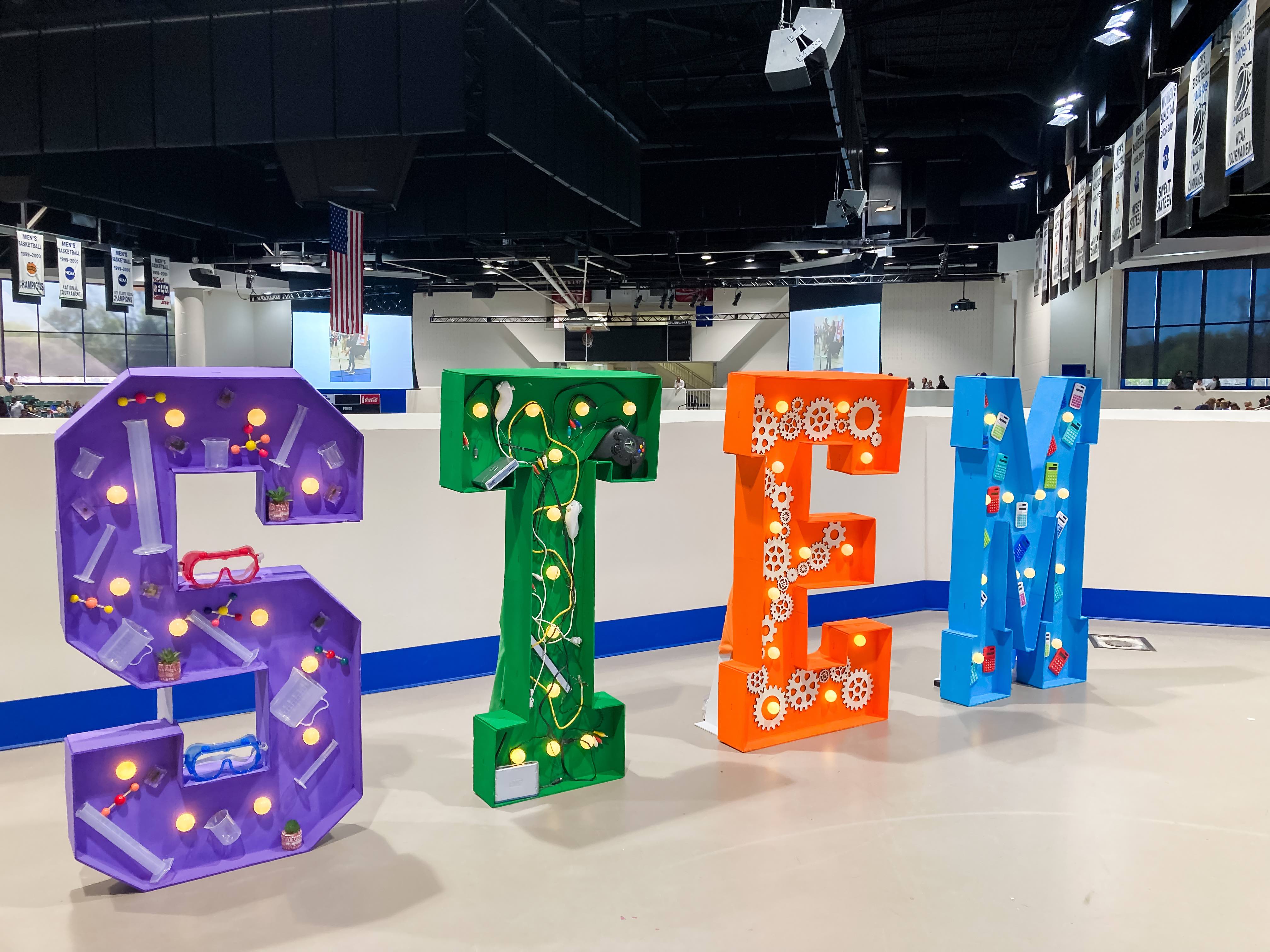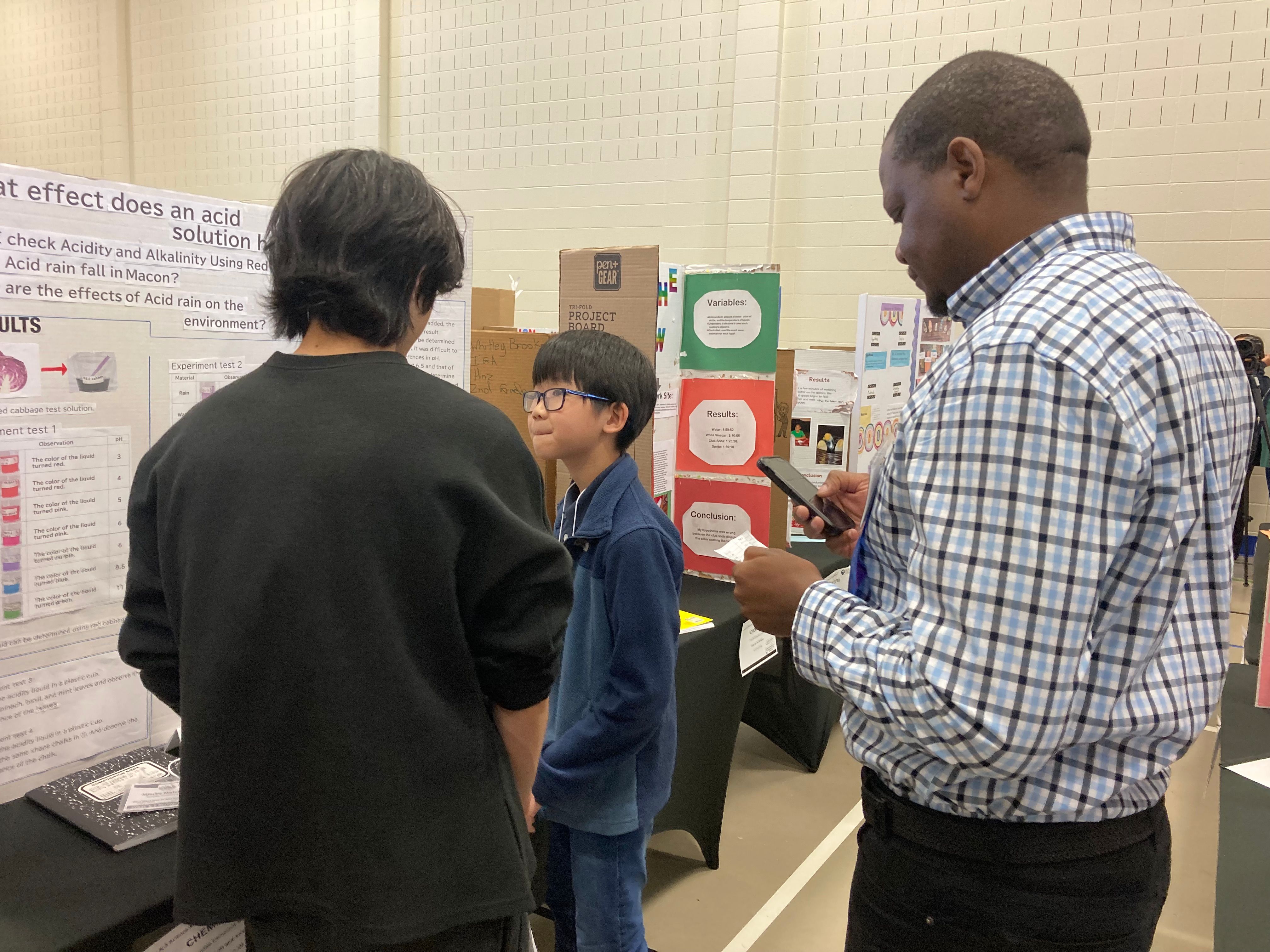GCSU International student saves the day at state science fair
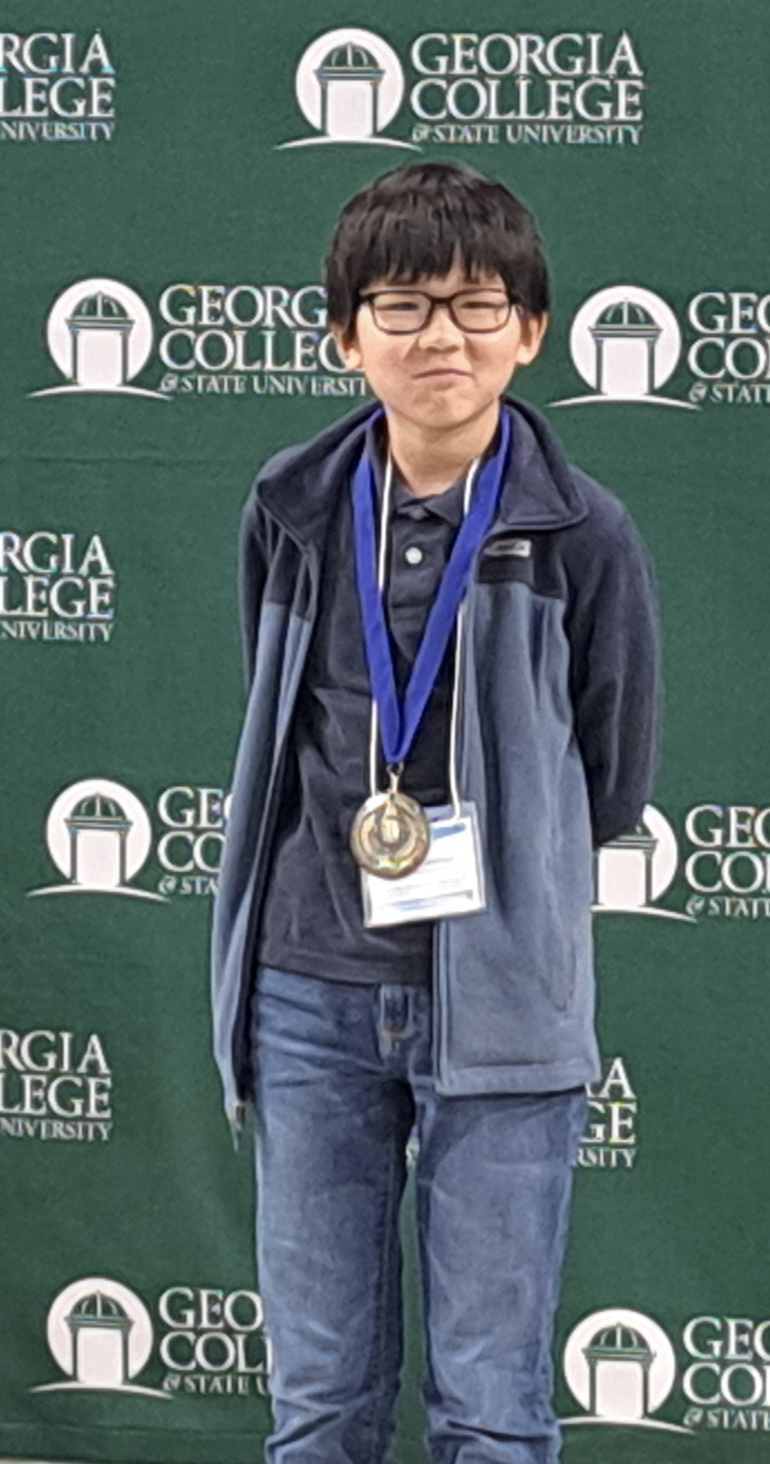
But few people—let alone an international student continents away from home—get to directly affect another person’s life, altering their path to greatness.
Rihito Uda was privileged to be that person recently for a little boy from Japan.
He was afraid he wouldn’t be able to effectively explain his science project to judges.
With Uda’s last-minute help as an interpreter, however, Sosuke did participate. In doing so, he won two prizes in the elementary division: a medallion for “Grand First Place” and trophy for “Best of Chemical and Materials Sciences.”
That’s quite an accomplishment—considering this was the biggest K-5 fair ever. Sosuke was one of more than 450 elementary students at the competition from across Georgia. His experiment on acid rain was chosen among 327 other projects.
“I am proud of Sosuke and each student who presented projects this year,” said Dr. Catrena Lisse, director of Georgia College’s Science Education Center. “The students work hard to make it to the state competition, and they left a lasting impression on our judges.”
“I was particularly excited to have Rihito help us interpret Sosuke’s project,” Lisse said. “I never want language to be a barrier for students to succeed in science.”
Georgia College organizes the only K-5 science fair in the state. Lisse has run into many snags and obstacles in her seven years coordinating the event—like when entire school districts show up without notice.
But this was her first request for an interpreter.
Uda is a junior business major from Kobe, located in the Kansai region of Southern Japan. He’s been studying abroad at Georgia College & State University since fall 2023.
Uda received an email from Lisse asking if he would act as interpreter. He immediately said yes.
Still, he was a little apprehensive.
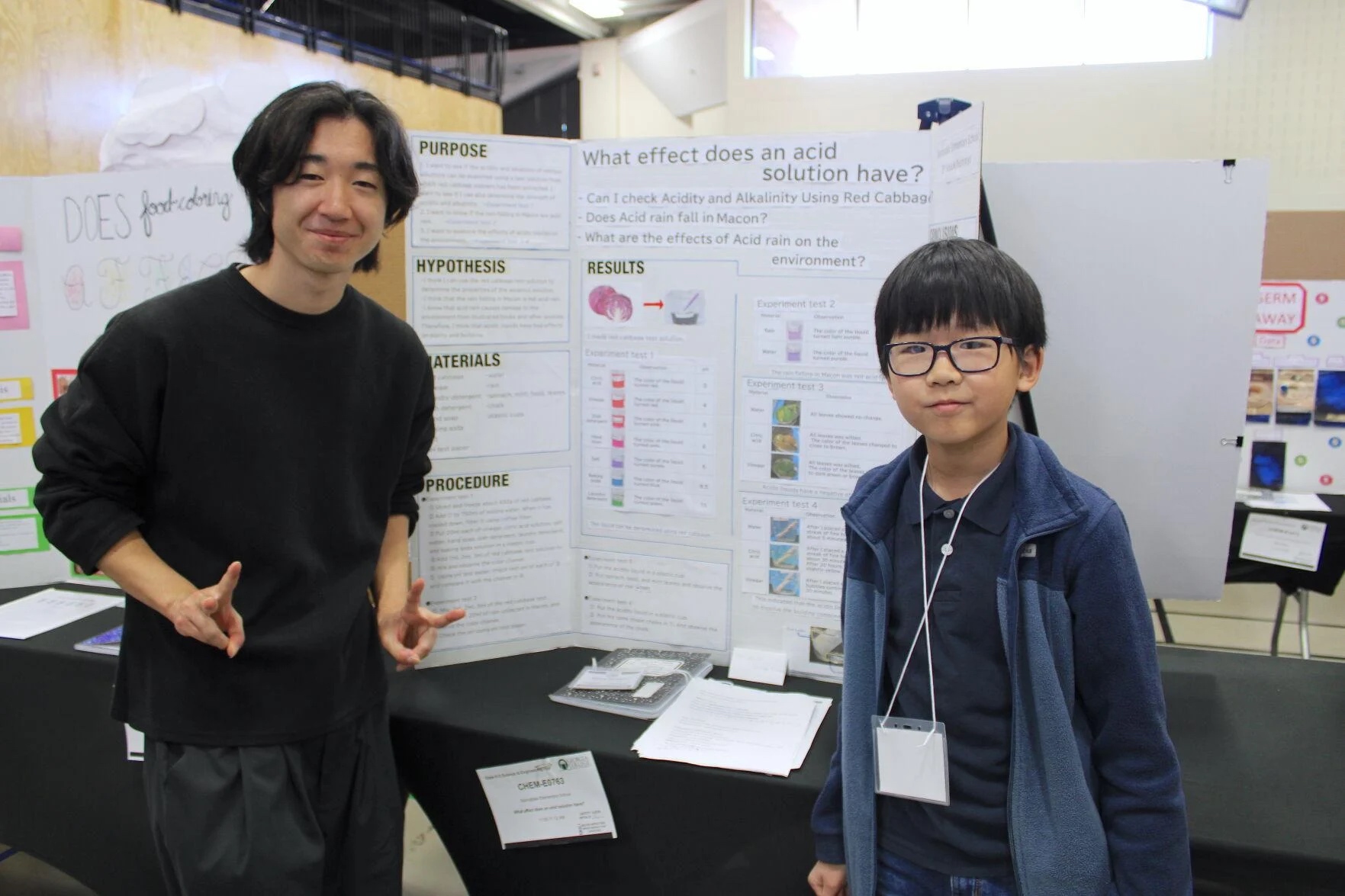
“He looked nervous at first,” Uda said. “I tried to ask him several simple questions to help relieve his tension. Then, he looked like he was getting relaxed gradually. We enjoyed talking to each other, and we were preparing for interviews for his project at the same time.”
The boy moved to Central Georgia with his family from Indonesia nearly two years ago. Originally from Suginami, Japan, his father, Yusuke Nishimiya, took a job at YKK, a manufacturing company in Macon that makes zippers and other fastening products.
Sosuke’s English is still coming along, and he’s very quiet in school. His mother, Shoko Nishimiya, said her son is shy by nature and doesn’t say much when speaking to other Japanese children either.
She marveled at how quickly her son bonded with the college student. Uda was the perfect role model for Sosuke.
Plus, he understands what it’s like to leave home and live in a strange country.
It can be a struggle to achieve in this setting. At first, Uda found it hard to learn in a different language, especially in courses that required class discussions. Sometimes the conversation went too fast for him to quickly comprehend and give responses.
This made him sympathize with Sosuke.
“In my case, it was so hard to get used to a new life,” Uda said. “He must’ve had the same situation. However, he seems to put his effort no matter where he is, and it led him to conduct his excellent project.”
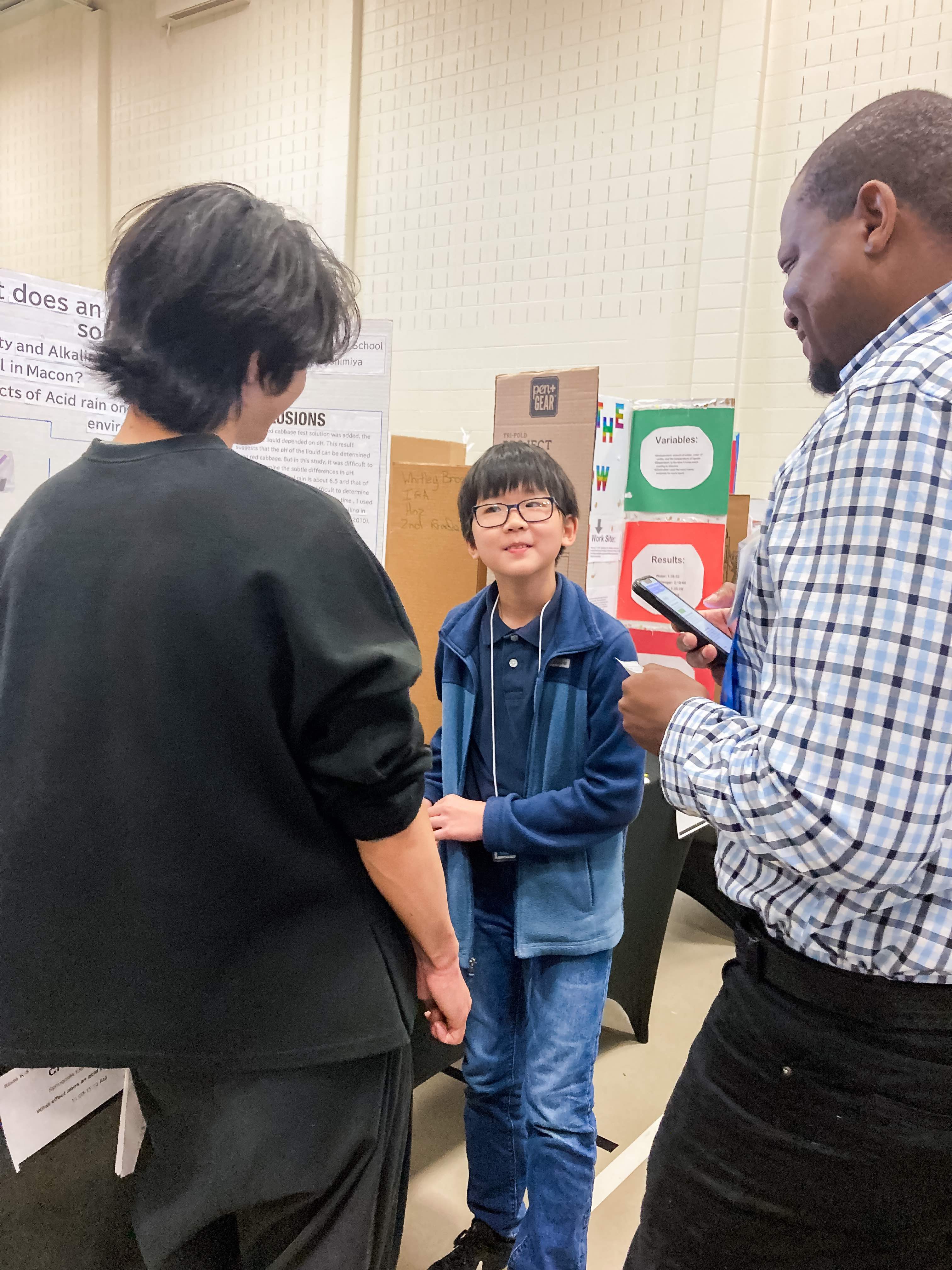
Majoring in business at Ritsumeikan University in Kyoto, Japan, Uda doesn’t come across many science words, especially in English. Little Sosuke patiently taught Uda, explaining his project over and over again—so the two would be ready for the judge’s interview.
“There are a few science words that I did not understand in English,” Uda said, “but he taught me how to say them in Japanese at that time. It was honestly difficult to act as an interpreter, but I tried to explain his project as accurately as I could.”
For his topic, Sosuke explored whether acid rain was falling in Macon, Georgia. He conducted four tests using different solutions on red cabbage: vinegar, citric acid, salt water, soap and baking soda. Adding red cabbage caused liquids to change colors, depending on the acidity.
Next, Sosuke used leaves to conclude acid rain was not falling in Macon.
When accepting his prizes, Sosuke turned to Uda with a big smile and said “Arigato,” the Japanese word for "Thank you."
“I was so grateful that he got a trophy,” Uda said. “It felt like it happened to me.”
Sosuke’s parents were overjoyed, as well. They expressed their appreciation many times to Uda and treated him to lunch.
In May, he returns to Japan, But he wishes he could stay longer, make additional American friends and collect more special experiences. He fondly recalls a presentation he gave about Japan at Georgia College’s International Festival that was well received.
Perhaps no memory from the U.S., however, will top his time at the science fair.
“Regarding this experience,” Uda said, “I’d like to thank all those who supported me as a Japanese interpreter. I was lucky to have such a precious chance. I’m sure this experience led me to grow up and contributed to my future.”
“I am still progressing in learning English. I want to keep putting my effort into it,” he said. “Finally, I appreciate Sosuke and his family for accepting me so nicely. I couldn’t have done without their support.”
